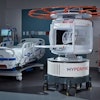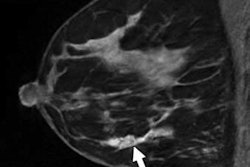The use of breast MRI by surgeons is influenced by the practice style of their peers, according to a study published online May 14 in the Journal of the National Cancer Institute.
The research suggests that the practice of medicine is affected by a concept called social contagion, which has been studied in the field of sociology and refers to how ideas, attitudes, and behaviors spread.
A team led by Dr. Cary Gross of Yale University's Cancer Outcomes, Public Policy and Effectiveness Research Center identified groups of surgeons who work with the same patients and determined which of them were using breast MRI to care for those with breast cancer. Gross' team investigated whether surgeons who did not initially use breast MRI -- but whose peers did -- were more likely to use the technology.
The researchers found that women whose surgeons were in peer groups with the highest breast MRI baseline use were more likely to undergo MRI exams than women whose surgeons' peers did not use MRI (24.9% compared to 10.1%).
"Peer influence can be a conduit that helps to increase the use of medical approaches that are not based on sound evidence -- or, alternatively, this social contagion might also be used to promote best practices among physicians," Gross said in a statement released by Yale. "That's the exciting part -- this concept of social contagion could be a potentially effective way of changing physician behavior and improving the quality of care."



.fFmgij6Hin.png?auto=compress%2Cformat&fit=crop&h=100&q=70&w=100)




.fFmgij6Hin.png?auto=compress%2Cformat&fit=crop&h=167&q=70&w=250)











